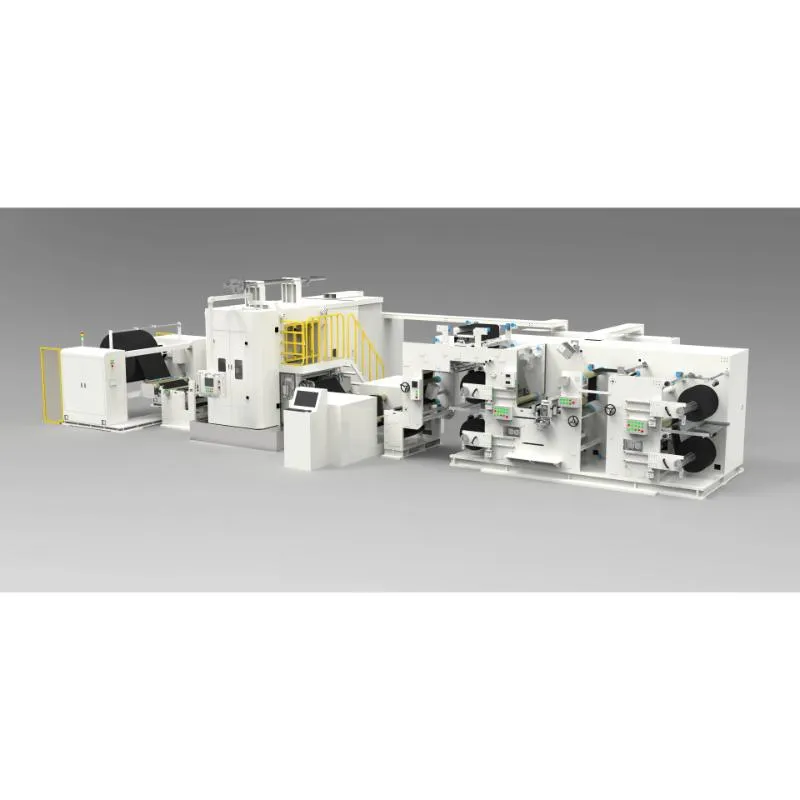Essential Tools for Lithium Battery Manufacturing and Assembly Process
Equipment for Lithium Battery Assembly
The growth of the electric vehicle (EV) market and the increasing demand for renewable energy sources have accelerated the need for effective lithium battery technology. As the backbone of this technology, lithium batteries are central to energy storage solutions for both consumer electronics and large-scale applications. To ensure that these batteries are efficiently and safely manufactured, specialized equipment for lithium battery assembly plays a pivotal role.
Overview of Lithium Battery Assembly
The assembly of lithium batteries involves several key processes, including electrode preparation, cell formation, and final packaging. Each step requires specific equipment that guarantees high precision, safety, and efficiency. The ultimate goal is to produce high-performance batteries while minimizing defects and maximizing production yields.
Key Equipment Used in Lithium Battery Assembly
1. Electrode Coating Machines The first stage in lithium battery assembly involves preparing the electrodes – the cathode and anode. Electrode coating machines are critical in applying active materials uniformly onto metal foils. This equipment often employs roll-to-roll technology to optimize the coating process, ensuring consistent thickness and performance of the electrodes. Precision is essential here, as the quality of coating directly affects the battery's energy density and overall efficiency.
2. Drying Ovens After coating, electrodes need to be dried to remove any solvents. Drying ovens are designed to provide controlled temperature and humidity levels, which are crucial for effectively evaporating solvents without damaging the active materials. This step is vital as residual moisture can lead to poor battery performance or even failure during operation.
equipment for lithium battery assembly

3. Slitting Machines Once dried, the large coated electrode sheets are cut into smaller, manageable pieces using slitting machines. This equipment must ensure that cuts are precise to avoid any defects, as irregular shapes can lead to inefficiencies and issues in the assembly process. The accuracy of slitting also helps in maintaining the electrode's integrity, ensuring optimal performance in the finished battery.
4. Cell Assembly Equipment The heart of lithium battery assembly lies in the cell assembly equipment. This encompasses several machines for stacking, winding, or pouch filling, depending on the design of the battery cells. Automatic stacking machines, for example, layer the electrodes with separators in between to form a complete cell structure. The assembly must occur in a controlled environment to reduce contamination, which can degrade battery performance.
5. Formation Equipment Following assembly, formation equipment is employed to initiate the electrochemical reactions within the cell. This stage is crucial as it helps in conditioning the battery, fine-tuning the chemistry to optimize performance. The formation process involves charging and discharging cycles that help stabilize the battery’s performance characteristics.
6. Testing Systems Quality control is an integral part of lithium battery assembly, and testing systems are crucial. These systems evaluate the batteries for capacity, internal resistance, and safety parameters. Advanced testing equipment can simulate various conditions to ensure that each battery meets the required specifications and standards before leaving the production line.
7. Packaging Machines Finally, the packaging of lithium batteries involves automated systems that securely enclose the assembled cells. Proper packaging is vital for protecting the cells during transportation and storage, especially given the sensitivity of lithium batteries to physical damage and environmental factors.
Conclusion
The production of lithium batteries is a complex process requiring specialized equipment designed to ensure high quality and efficiency while meeting safety standards. As the demand for lithium batteries continues to rise, innovations in assembly technologies will play an increasingly important role in enabling scalable and sustainable battery production. With advancements in automation and precision engineering, the future of lithium battery manufacturing looks promising, paving the way for cleaner and more efficient energy solutions.
Share
-
flat-rasp-techniques-for-metal-surface-finishingNewsAug.22,2025
-
can-a-faulty-car-door-seal-cause-wind-noiseNewsAug.22,2025
-
how-rolling-roller-technology-improves-battery-production-efficiencyNewsAug.22,2025
-
major-obstacles-to-automating-a-car-battery-assembly-lineNewsAug.22,2025
-
the-role-of-slitting-machines-in-lithium-battery-electrode-manufacturingNewsAug.22,2025
-
key-challenges-in-lithium-battery-production-line-optimizationNewsAug.22,2025







